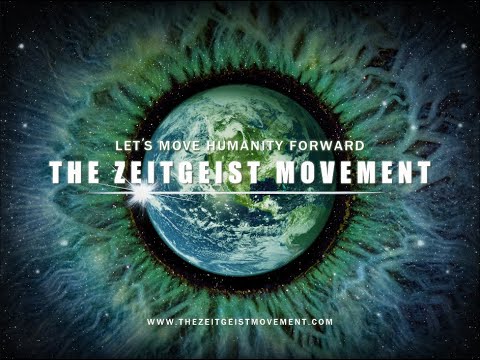Introduction
The Zeitgeist Movement (TZM) works to transform the dominant cultural and social climate of our time—hence the name “Zeitgeist.” At our core, we advocate for a post-scarcity economic model called a Natural Law/Resource Based Economy (NL/RBE), which prioritizes sustainability and efficiency to enhance societal well-being in harmony with nature. Our approach follows three phases: analyzing, researching, and creating. The creation phase becomes possible only when a substantial population understands and can clearly articulate the Zeitgeist Train of Thought to others. Currently, our focus remains primarily on analysis, research, and education, as we have yet to develop a critical mass of knowledgeable advocates necessary to shift toward creation.
Chapters
The Zeitgeist Movement operates through a network of chapters (local groups) that may further organize into specialized teams. Chapters exist at various levels: local (such as @chapter_new_york or university campuses), regional (such as provincial or state-based groups like @chapter_se_michigan), national (such as @chapter_netherlands), or international (online). These chapters function within a “grassroots” framework—each operates independently while advancing the collective Zeitgeist train of thought without central control. Every chapter works to spread and refine this philosophy by raising awareness about fundamental social and economic problems while investigating and promoting available practical solutions that can help us transcend the current outdated socio-economic system.
Activism
We engage with the public through events (both in-person and online), social media, and volunteer work. The Zeitgeist Movement’s activism employs peaceful methodologies that address the root causes of common social, environmental, economic, and technological problems. For further guidance, consult the Chapters Guide.
Never doubt that a small group of thoughtful, committed citizens can change the world. Indeed, it’s the only thing that ever has.
Train of thought
The Zeitgeist Movement stands apart from political movements and rejects divisions based on race, social class, religion, or nationality, as we seek to transcend these separating constructs. We recognize the benefits of viewing ourselves as global citizens interconnected with each other and nature. Since natural laws function as an absolute dictator, alignment with these principles becomes essential. Our challenges and concepts transcend national boundaries and personal perspectives. As an educational movement, we strive for sustainable social transformation through a fundamental shift in societal values. Any society operating under the assumption that ecosystem considerations are optional creates harm. Even sustainable technologies achieve limited success within such societies, especially when they operate under the utopian notion of maintaining infinite economic growth on a planet with finite resources.
Without well-established social and sustainability values, science and technological advancements may not reach their optimal potential. Consider nuclear fission—this discovery could have remained focused on efficient energy generation. Instead, our planet now faces the threat of history’s deadliest weapons. While the world needs more collaborative projects like the Manhattan Project—not for creating weapons of mass destruction but for mass creation to improve global conditions—without positive cultural and economic transformation, the next major scientific breakthrough might prove even more detrimental to humanity. The situation resembles a child discovering a parent’s firearm; as a society, we haven’t yet developed the maturity for responsible management of our technological capabilities.
Educational movement
This philosophy advocating cultural and economic transformation holds paramount importance beyond merely focusing on sustainable technology or urban redesign. The Zeitgeist Movement functions as an educational initiative that communicates this philosophy to the general public through various channels. Our approach remains adaptable and evolving, much like nature itself. The movement recognizes that cultural transformation represents the most challenging aspect of change, as scientific and technological progress already advances continuously. While we demand constant innovation from industries like smartphone manufacturers, we rarely apply similar critical standards to cultural evolution. Therefore, our primary commitment centers on fostering an educational awareness process.

